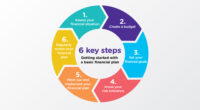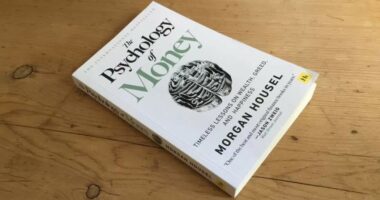Emotional Budgeting: How Feelings Shape Finances 💸
Budgeting isn’t just about numbers — it’s about emotions.
People often save, spend, or invest based not on logic, but on how they feel.
🔹 Fear can lead to hoarding money — avoiding investments out of anxiety.
🔹 Joy may result in impulse buying after payday (“I deserve it” spending).
🔹 Guilt might make someone overspend on gifts or donations.
🔹 Insecurity can cause lifestyle inflation — trying to look successful, rather than be financially secure.
✅ The solution? Emotional Budgeting.
It means creating a budget in harmony with your mental state — understanding your emotional triggers and using them to plan wisely.
📌 Example:
If you know stress leads you to overspend, build in a “comfort buffer” — like a small treat budget — so you don’t sabotage your financial goals.
💡 Pro tip: Track your emotional state alongside expenses. You’ll start seeing patterns — and gain control not just over money, but over yourself.







